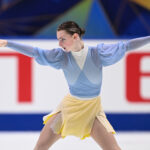
Ashley Wagner Crowned Champion at Skate America, Looking to Medal in PyeongChang
Ashley Wagner went into last weekend’s Skate America as the favorite to win the Ladies event. The 3-time U.S. national champion is building upon great momentum from last season, with a historic second-place finish at the 2016 World Figure Skating Championships in Boston, ending the decade-long medal drought for U.S. Ladies.
Wagner set foot in Sears Center, in Hoffman Estates, Illinois last Thursday ready to dominate. Looking confident and determined, she hardly missed a jump in practice and showcased expressive choreography in pre-competition run-throughs. Despite a few under rotations and an omitted triple Salchow in the free skate, Wagner topped the ladies field with a relatively clean short program and superior performance quality in both portions of the event. SkatingChina journalist spoke with Wagner following her official practice on Thursday.
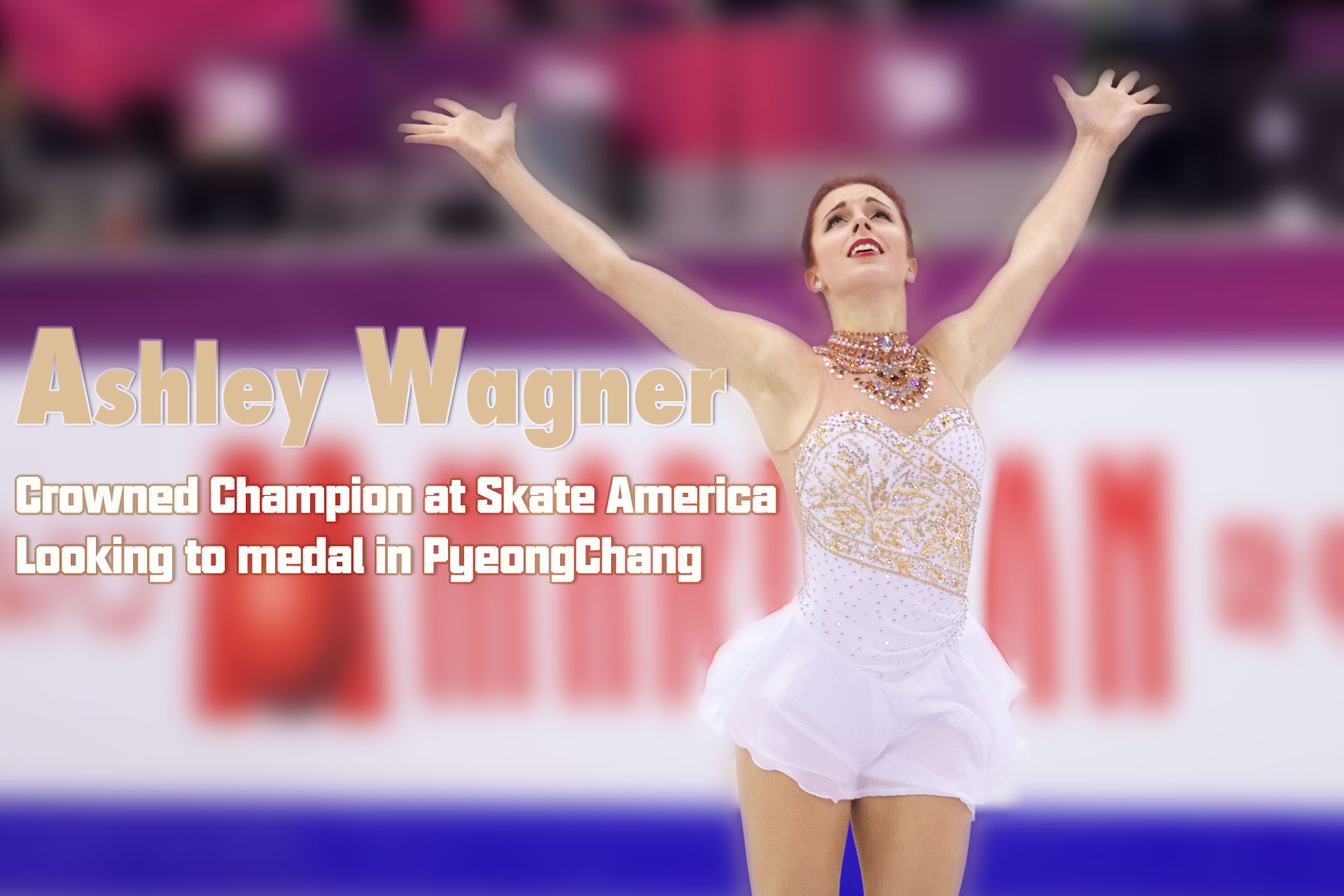
The 2016-2017 Pre-Olympic Season: Continuity and Change
After claiming silver on home ice at last season’s World Championships and winning gold at her Grand Prix season debut this past weekend, Wagner has established herself as a real contender for the World and Olympic podium. Known for her performance quality, Wagner, having skated charmingly to character-driven programs such as Black Swan and Moulin Rouge, is challenging herself this season with a feeling-based long program, set to Exogenesis by Muse. As we head into the pre-Olympic season, Wagner hopes to continue working on her technical content and strengthening her performance quality.
What’s the story/theme behind your short program?
A: I just want my short program to be fun and kind of like a show program. I am skating to Sweet Dreams by Annie Lennox and it is this strong, sexy woman and I feel that it really plays on who I think I am as a person. It’s showy and it’s flashy, and I am really excited about it. I think it will be great for the audience to watch. There is not so much of a story, but just a character and theme throughout it.
How is your short program this season similar or different from your short program last season?
A:I wanted something similar and different at the same time. Last year it was very fun and it was light and dancey, and that was kind of everything that it was. This year it is a totally different style first of all. The Latin has been taken out of it entirely. It is this edgy rocker 80’s chick. The movement and the style is different, and the way I am acting on the ice is less flirty and more like woman in charge.
You debuted your long program at the Japan Open. What are the challenges of performing a feeling-based as opposed to a character-driven program?
A: I think the biggest challenge would probably be that there aren't lyrics telling people exactly how to feel. With Moulin Rouge I went in as a character. People knew the story of Moulin Rouge and I didn't really have to explain much. They already knew why I was acting that way and the story I was trying to tell. I think this program is a challenge because there are words, but people can kind of interpret them however they want. In a way it lets me do whatever I want, and be whoever I want, but at the same time you still have to pick a theme, pick a story, and stick with that, and make it obvious to the people, so they know what you are trying to portray. That’s definitely been the biggest challenge, but it has made me a better skater.
What is the story your are trying to tell?
A: For me the story is a story of loss. You lost someone in your life that was everything. They were your world. The program starts off very sweet, like the beginning of a relationship. Everything is happy and it’s so innocent and pure, and the music reflects that as well. And then it starts to build, and things start to go wrong and it gets less of a clean line and it gets rougher and a little bit more chaotic. And then the lyrics come in and it is saying “let’s start over again.” So I think it’s about getting to a place where everything is so bad and so messed up that you just want to start over everything again. But life doesn't work that way, and you can’t. So I hope that people see that when I finish the program, it’s about accepting yourself and being okay with yourself, and being okay without that person and moving on.
Are you drawing on life experiences in your long program?
A: I definitely am drawing on life experiences. I don't have tragic life experience like that, but everyone has gone through breakups, and things where you feel like you just can’t even imagine your world being any other way. That’s definitely what I am drawing on from my own life, is that moment when everything goes bad and you just can’t imagine it not existing anymore. You want to just start over and take away everything. But for me, in life, I have always found that in moments like that I won’t ever be able to move on, unless I forgive myself and let myself be okay with everything.
Do you think your programs this season are touching an authentic core in you?
A: Absolutely. I think the short program is who the world sees me as on the outside and the long program is some really twisted stuff that I had to go through in my own life. I skate best when I am drawing on life experiences and not when I am acting and putting on a show.
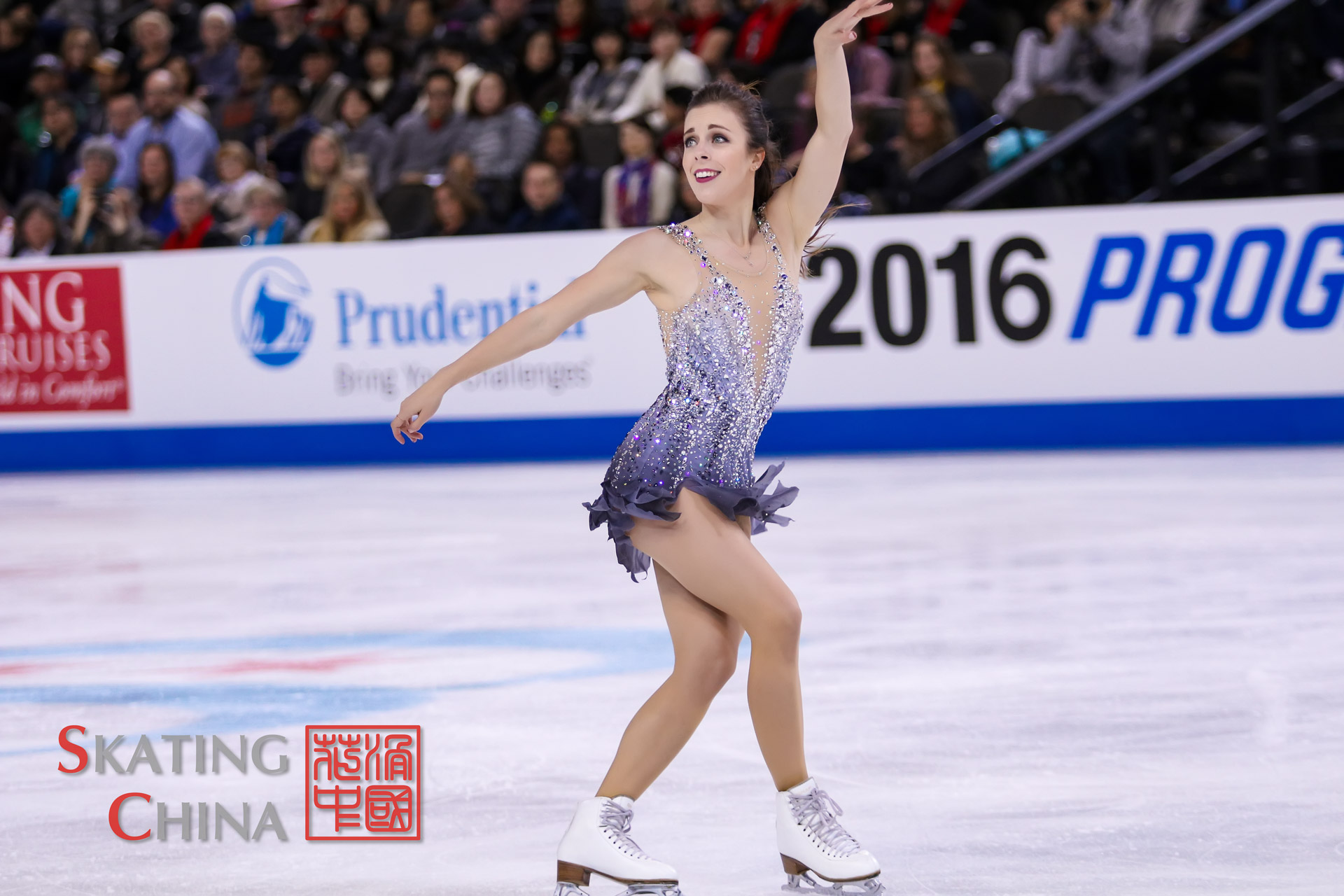
Boston Worlds: Making U.S. Figure Skating History Despite an Injury
After failing to defend her national title and sustaining an injury, Wagner went into Worlds last season putting no pressure on herself to medal, while working tirelessly on the weaknesses she showed at the 2016 U.S. National Championships. Her hard work paid off. Wagner closed Bos-ton Worlds with a nearly flawless free skate, moving up from 4th place in the short program to the silver-medal position, winning her first ever World Championships medal. Wagner’s break-through performance at Worlds last year has given her a newfound confidence and made her chances of making the Olympic podium very realistic.
What were your expectations going into Worlds, given that you were not the national champion and your traumatic experience at 2014 Nationals?
A: I in a way went in with no expectations. I put no pressure on myself to be a medalist. I have done that so many years before and it had never worked out. I knew that it was going to be hard because I am going into an arena where there were demons. But I went into the arena for a promotional thing a month before, and just did a lap around the rink and mentally reset myself. And I think that kind of helped me get onto the ice at worlds and feel like it is a totally different event.
Beyond that, Nationals put my weaknesses out on a silver platter. I knew that even if I hadn't popped that triple lutz, I wouldn't have won. I was so far behind in points with spins and my quality of skating. It definitely showed me that I had a lot of things to work on. I need to put out two solid programs and on top of that my programs just need to be quality all over. So I worked on the program as a whole, and that made me a better skater for Worlds.
What did you address specifically between Nationals and Worlds?
A: My spins. My spins were a huge part of the training process because I lost a lot of points on that. And my jump quality. I could land the jumps but they were not nice or pretty. So I definitely worked on that. And the triple-triple. I tried my best to get that improved. And after that, it was just doing the run-throughs over and over again so that even when I was tired I can still skate it and have it be pretty.
You skated last in the free skate. How did you keep your composure between the 6-minute warm-up and your performance?
A: I panicked. I was so nervous (laugh). I just went backstage and I was back there with Raf and one of my team leaders who was at the Olympics with me. So he has been to many competitions with me and he knows how I get anxious and how to get me out of my head. For me, if I stay laughing and relaxed, that’s the best for me. If I get quiet and in my head, then it’s not good. So being backstage with the two of them and talking, they helped me relax.
You spoke a little bit about your injury at the Team Challenge Cup following the World Championships, so were you injured at Worlds?
A: Yes I was very injured going into Worlds. I took a bad fall at a skating show a month before Worlds and I actually had a minor tear in my quad. That was scary because I didn't know if I was going to be able to really skate or compete at the level I needed to. I chose not to talk about the injury at Worlds because I knew that if I talked about being injured, everybody would make it this huge deal and that would be the only story I would hear about. Mentally it would be a reminder of my injury over and over again, and I didn't want that. I just wanted to focus on what I could do.
By the time Team Challenge Cup came around, I had worked so hard before Worlds to get in shape and pushed through the injury that, my leg was just done for the season. It was exhausted and I was exhausted from pushing so hard, but I was able to make through the competition just fine. After the season ended, I was able to give it the attention it needed and now I am back to 100%.
How has Boston Worlds impacted your training during the off-season?
A: I capitalized on the momentum going into the summer. It inspired me to train even harder than I had been because it showed me that my training got me onto that podium, it motivated me and made it a realistic goal to get on to that podium. I can almost taste it. It’s a totally new season. Hopefully I’m a different athlete from that Worlds event and I think it’s just about building upon that.
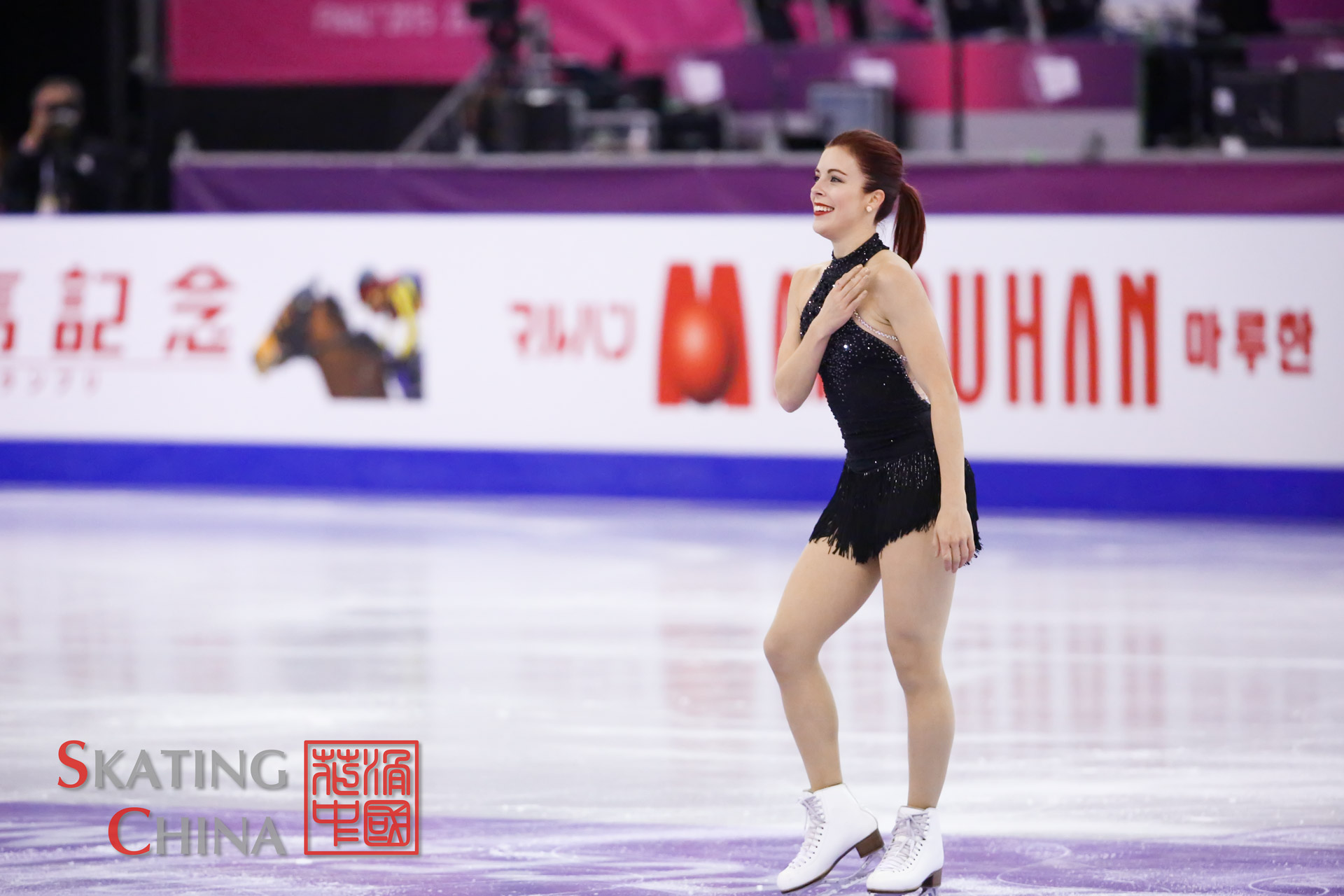
16-Month Countdown to PyeongChang: Striving for the Whole Package
Despite her continued success, Wagner is consistently looking to improve upon both the technical and artistic sides of her skating. At the 16-month mark to the 2018 PyeongChang Olympics, Wagner hopes to address the quality of her technical elements, in particular her triple-triple combinations and spins. Given her passion for the sport and relevance in the world standings, Wagner is undecided about her future after PyeongChang.
We are at the pre-Olympic season right now and what do you hope to address between now and the Olympics?
A: I think going into the Olympics it is really important for me to continue to max out my technical side of skating. I am not going to be the technically strongest athlete at that event. I already know that it will be possible to beat me on the technical side. But if I take what I have and I make that the best I possibly can with the nicest exits and just pure control and have it be textbook jumps. And I think that will definitely help me. And then continuing to build on my performance ability and strengthening up my skating skills. And my spins. I put in a lot of work this off-season on my spins, so we well see if that carries through and that definitely has to improve.
You have improved so much on your consistency. How were you able to achieve that?
A: It is really important to get that feeling of getting to the same spot on the jump, like the same spot on your blade on the edge going in. It is so precise, but if you can repeat that as much as possible, then you get the same result as much as you possible can, so I think just drilling the jumps over and over again has helped me.
How were you able to get a better control of the mental side of your skating especially after the Sochi Olympic season?
A: I am still working on it because every competition feels different and there is not one recipe for success in that area. But I think the way that I train now is so different from how I was training when I was younger, so I can go into competitions and feel very solid and I know that I have put in hours of hard work and I can kind of rely on my training and that feeling of the jumps to pull me through.
What are your goals going into this season and for the upcoming Olympics?
A: I want to establish myself as the leading lady at Skate America. The Grand Prix Final is obviously part of the journey that I want to be a part of. And then going into Nationals, last year of course I wanted to be the national champion, but my goal was to get through Nationals to build onto Worlds. So I think that same kind of mentality. National champion would obviously be an honor and I would love that, but I just need to get myself onto that World team and Worlds is where I really want to get back onto that podium again and keep on improving.
Will next season be your last?
A: I don’t know yet. For me, I don’t want to say it is going to be my last season because I still love the sport so much and I still feel like I am so able to do it. Eventually I do want to have a life beyond the rink, but if I still love it and I am still good at it, I don't see any reason to stop.
What are your plans after your skating career eventually comes to an end?
A: I would love to go into some type of broadcasting, whether it is commenting for NBC or doing something along those lines. I think that would be a great fit for me.
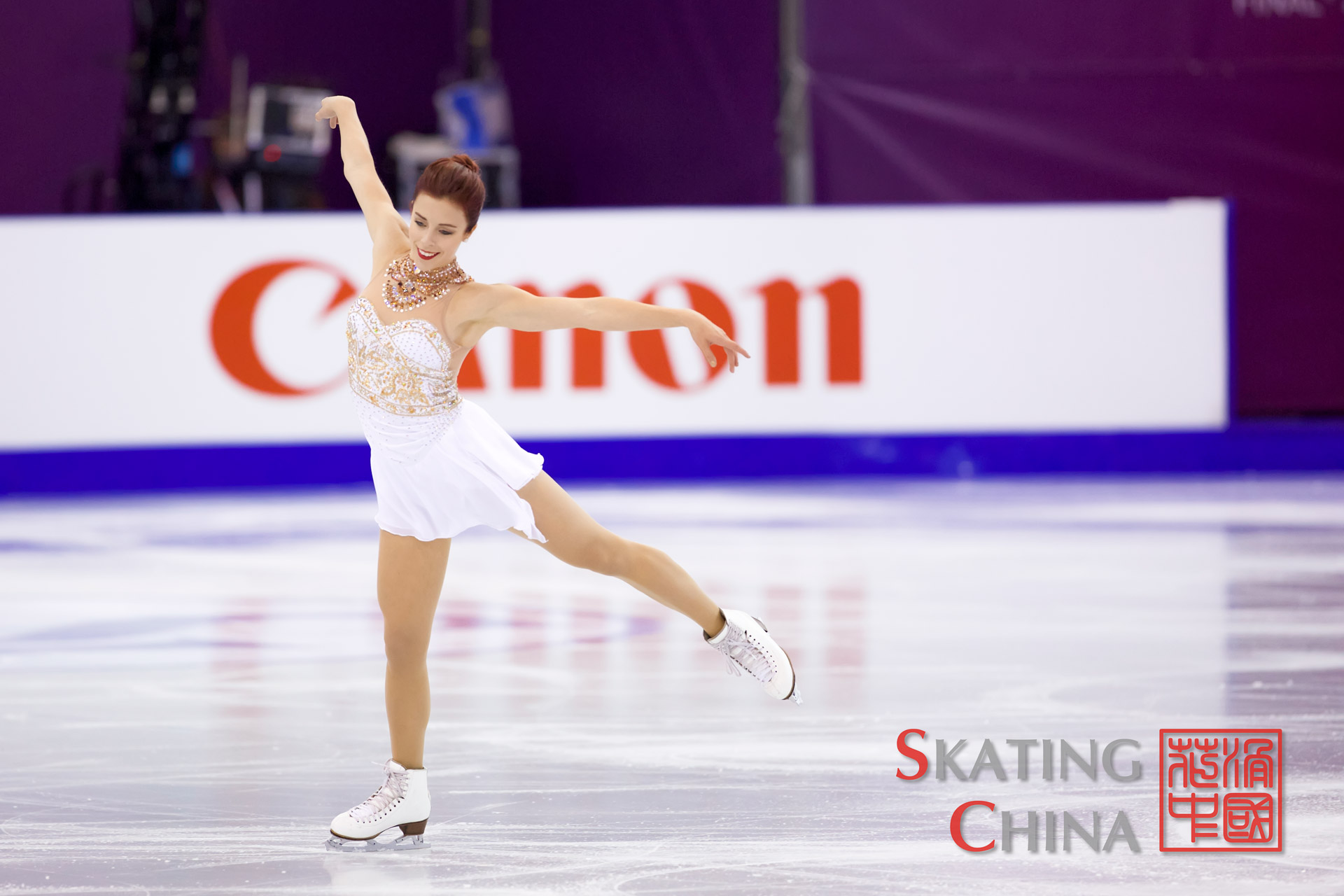
Go to 中文版
(Journalist/Cherry Ji Photographer/Kate/Zichen Liu Coverpage/Editor/Share Wang)
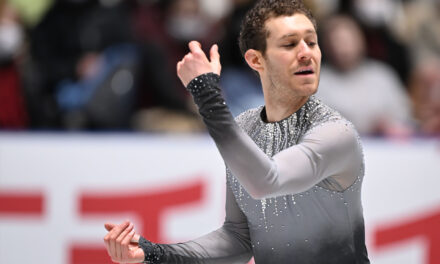
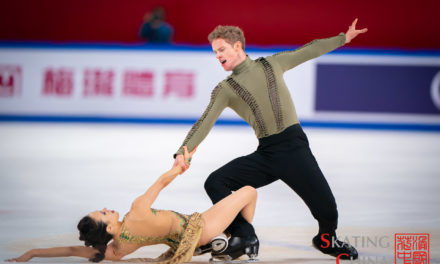
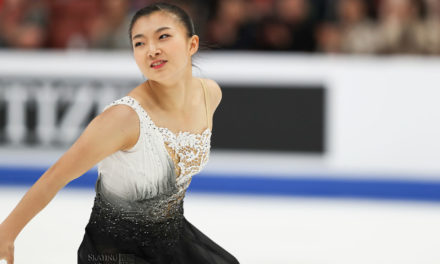
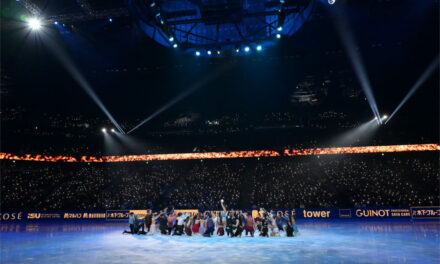
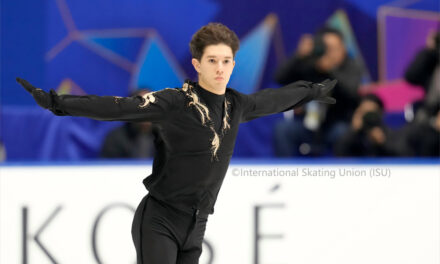
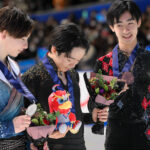
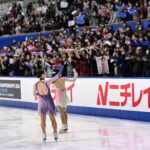
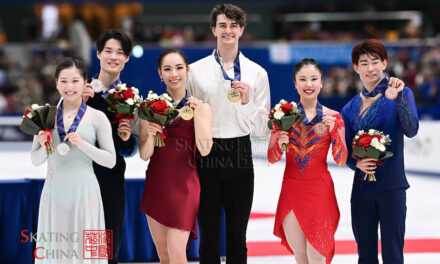
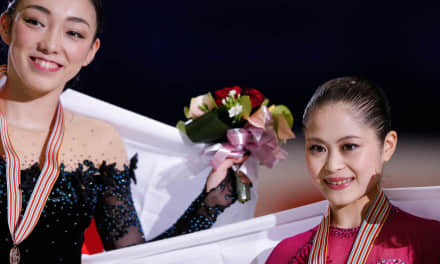
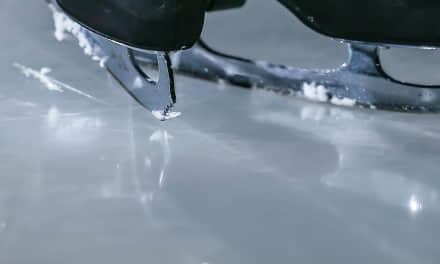
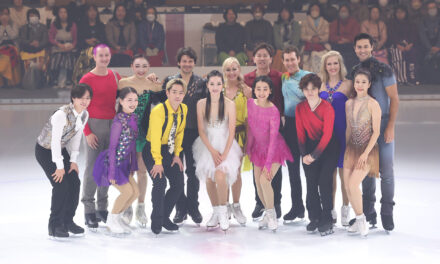

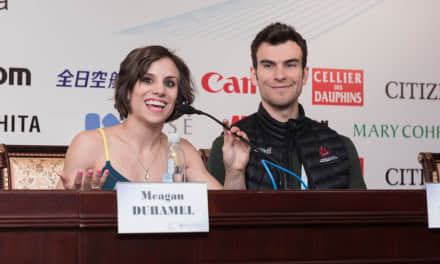
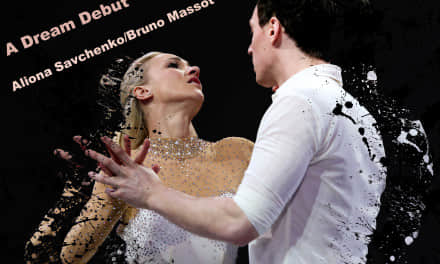

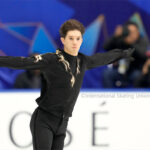
近期评论
——“花样滑冰是艺术与体育最好的结合”
——“花样滑冰是艺术与体育最好的结合”